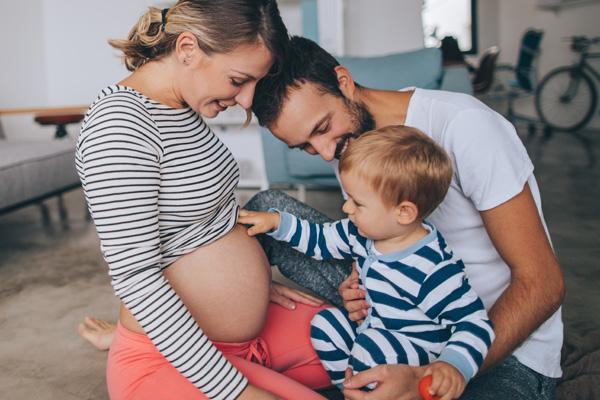Stillbirth - We talk about it so you dont have to live it
Stillbirth can happen even in low-risk pregnancies, but you can help lower your risk of stillbirth and other pregnancy complications.
1. BABY´S MOVEMENT IS THE MOST IMPORTANT WAY TO KNOW IF YOUR BABY IS FINE
Your baby communicates with you through his movements, so pay attention to your baby´s movements, patterns and strength at different times of the day.
If you feel something is not right, seek help. You are already a mother and your baby's best advocate. If you notice a change in baby movement, go to the L&D floor.
Most parents that suffered stillbirth noticed a change in the baby's movement before the baby's death. A change in movement can be an early sign and sometimes the ONLY warning sign that your baby needs help. If reported promptly, there is a window of opportunity in which the baby's life may be saved.
Some examples of change include less movement, weaker movements or an unusual rapid increase in movement. Trust your gut instincts.
- Babies do not slow down at the end of the pregnancy.
- Babies do not run out of room at the end of the pregnancy.
- Don't drink cold water or orange juice.
When in doubt get, check it out! Do not wait until the next day. You are already a mother. If you think your baby is not fine, go check it out. Call your doctor.
For more information go to: www.countthekicks.org
2. ASK FOR HELP ADVOCATE FOR YOU AND YOUR BABY
Most people feel intimidated by doctors or don't want to bother them. Think that your doctor wants to hear from you, so do not hesitate.
If you have any concerns or bad feelings about the well-being of your baby or yourself, put in a call to your healthcare provider, or better yet, head to the Labor & Delivery unit at your nearest hospital to be checked out. When in doubt, get check it out.
3. SIDE TO SLEEP
Available data has shown in five separate international research trials that there is a link between stillbirth (being 2-8 times more likely, depending on the study) and going to sleep on your back in the third trimester (after 28 weeks of pregnancy).
Interested in learning more statistics? Check out these info source links from various studies:
- Useful information 01
- Useful information 02
- Useful Information 03
- Useful Information 04
- Useful Information 05
Ideally, from about 28-30 weeks onward, you should try to fall asleep on your side (either side). If you wake up on your back, do not worry - research has shown that you likely spent the deepest and longest part of your sleep on your side, and rolling to your back is probably what woke you up. Just roll over onto your side again.
Tommys in the UK & Australias Still Aware both offer excellent in-depth answers to many frequently asked questions about safe sleeping position in pregnancy - check those out to learn more:
- https://www.tommys.org/pregnancy-information/im-pregnant/sleep-side/sleep-position-pregnancy-qa
- https://stillaware.org/yourpregnancy/safe-sleep-in-pregnancy
4. PREGNANCY AFTER LOSS
You thought that getting pregnant would solve your problem, end your grief and bring joy, but it doesn´t. We know it!
The joy of knowing you are pregnant again is overshadowed by an overwhelming anxiety. Weve been there.
The emotions can co-exist and you are not crazy: anxiety, grief, guilt for grieving, fear that your body will fail you, delaying attachment to your rainbow baby and guilt for delaying that attachment. A soup full of emotions, you name it. You can love the two babies and you will grieve one of them. Its normal, youve been through that so much.
One baby DOES NOT erase the other and its ok to love both. Grief is love.
Make sure you see a physician that you trust and feel comfortable with.
If you need, always seek help. When in doubt, get checked out!

